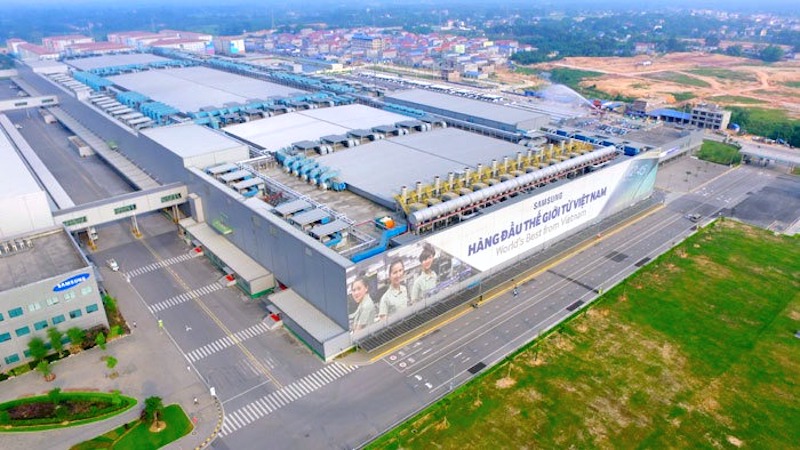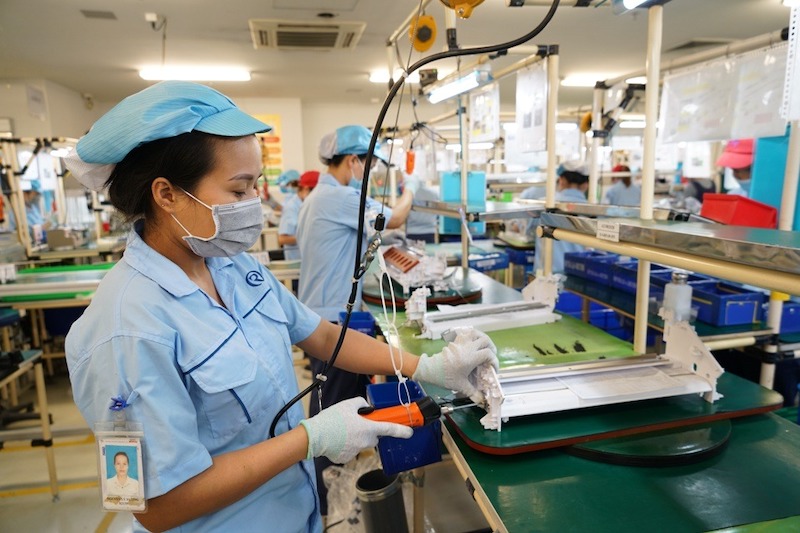Vietnam’s smart manufacturing sees rising role in global trade
Vietnam is emerging as a pivotal hub in the global smart manufacturing shift, attracting major foreign investors and high-tech industries.
THE HANOI TIMES — Vietnam's role in the global supply chain is becoming increasingly vital as major international corporations expand operations and establish production networks in the country, according to experts at the Vietnam Global Manufacturing Forum 2025 (VGMF 2025) in Hanoi this week.
For companies like Chery Automobile, one of China’s leading automakers, expanding operations and global giants establishing production chains, the country is rapidly integrating into the global supply chain, Trinh Huy, Deputy General Director of Chery Vietnam and Director of its Vietnam plant, said and adding that Vietnam plays a key role in the company’s globalization strategy.
Besides Chery, major global players such as Samsung, Foxconn, BYD in the north (focusing on consumer electronics and semiconductors) and Haier (AQUA), TCL, Midea, and Adidas in the south (home appliances and textiles) are steadily establishing production chains in Vietnam.

Samsung Thai Nguyen from above. Photo: Samsung Electronics
At the conference, participants agreed on Vietnam's growing relevance in global supply chain transformation. The country is rapidly moving towards automation and digitalization, especially in high-tech sectors such as electronics, automotive, renewable energy, and semiconductors.
"The shift in the global supply chain poses a great opportunity for Vietnamese enterprises to enhance cooperation and improve their manufacturing capabilities," said Huy.
In the first two months of 2025, Vietnam attracted nearly US$6.9 billion in registered foreign direct investment (FDI), surging 35.5% year-on-year, according to data from the Ministry of Finance. Meanwhile, trade turnover exceeded $127 billion, strengthening Vietnam's role in the global supply chain. In 2024, total trade rose 15.4% to $786.3 billion, with exports growing 14.3%.
Among the top export categories, electronics, computers, and components fetched $72.6 billion in 2024, up 26.6% from 2023, accounting for 17.9% of total exports. Mobile phones and accessories followed at $53.9 billion (up 2.9%), while machinery and equipment reached $52.3 billion (up 21%).
FDI boost drives smart manufacturing and supply chain growth

Electronics production at Rythm Precision Vietnam in Noi Bai Industrial Park, Hanoi. Photo: Pham Hung/The Hanoi Times
At the event, Nguyen Mai, Chairman of the Vietnam Association of Foreign Invested Enterprises (VAFIE), emphasized that despite geopolitical and economic uncertainties, Vietnam has a competitive edge in attracting foreign investment. With 17 next-generation free trade agreements (FTAs) and ambitious goals for economic transformation, Vietnam is tailoring its policies to international standards while streamlining government operations for efficiency.
“Foreign investors see these advantages as key incentives for entering Vietnam, while the country also has the leverage to select investment projects that align with its FDI strategy,” he said.
However, challenges remain. Vietnam must effectively manage the transition to smart manufacturing and secure a stronger position in the global value chain while maintaining competitiveness, the chairman said.
Industry insiders at the forum agreed that with strong government support, an open economy, and a robust inflow of FDI, Vietnam is well-positioned to upgrade its manufacturing sector, embrace advanced technology, and drive innovation. However, capitalizing on these advantages requires a long-term strategy focused on developing domestic supply chains, upskilling the workforce, and strengthening international partnerships.
Ngo Lang Van noted that Vietnam's current industrial chains still rely heavily on imported raw materials due to weak local supply chain capabilities.
"This dependence not only drives up costs but also reduces flexibility and stability in the supply chain," he said, urging Vietnam to improve localized supply chain services, invest in new materials research, and adopt cutting-edge technologies.
He recommended that Vietnamese firms strengthen cooperation with supply chain leaders from countries like China, Japan, and South Korea. "This would facilitate the development of smart manufacturing ecosystems, especially in semiconductors and AI-driven digitalization," he said.










